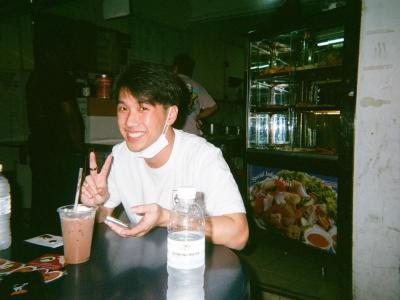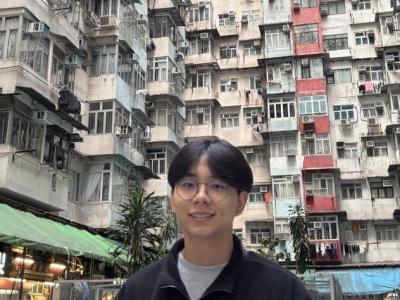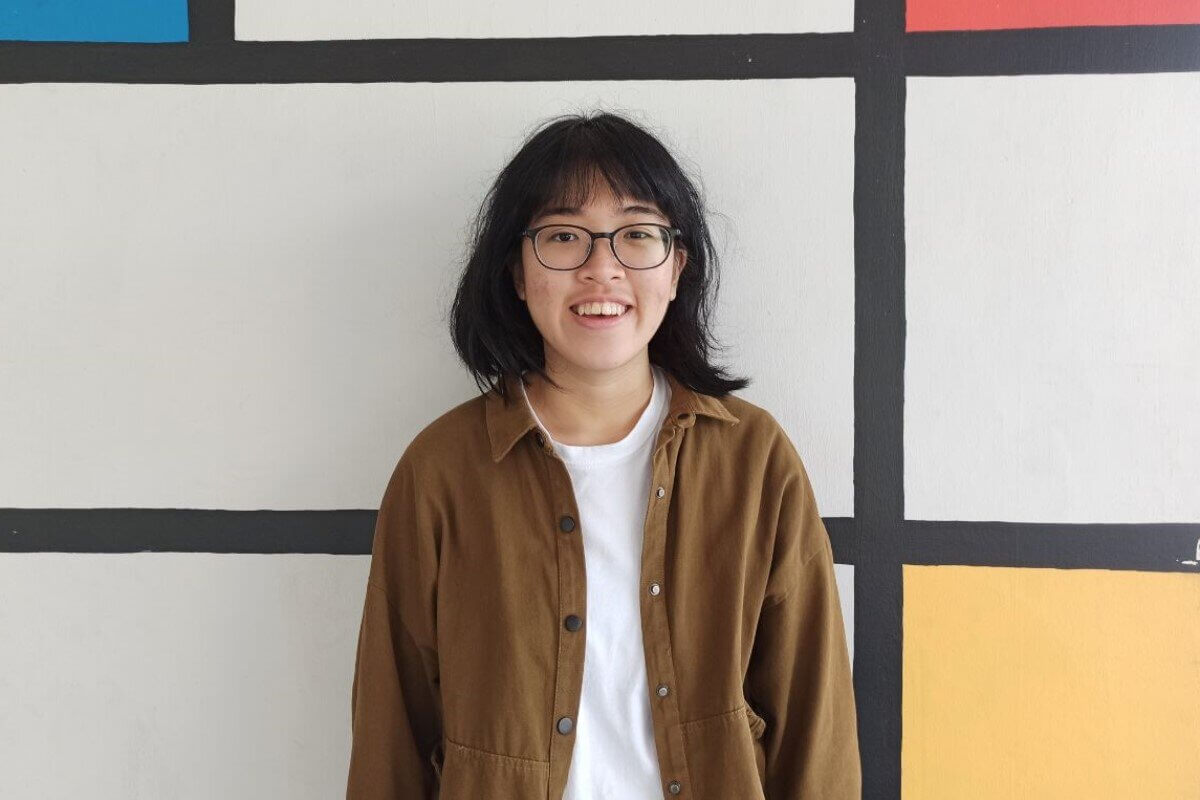
A university education is usually regarded as a key ingredient for career success. But as much as employability is correlated with academic achievements, professional growth involves much more than acquiring new skills or knowledge.
Through involvement in community projects, students can learn about the needs of others and the importance of giving back. As they work to improve the lives of those around them, students can also develop a greater appreciation for their privilege and power. In short, community service can be a transformative experience for both individuals and communities while changing lives for the better.
Community Service has been an integral part of SMU’s DNA since the university’s inception in 2000,and that has enabled Sia Yu Ting, a final-year student pursuing a double degree in Economics and Sociology, to apply classroom learnings to her work as a volunteer for the Covid-19 Migrant Support Coalition. Read on to discover why Yu Ting chose SMU, and how she has thrived through a holistic learning experience.
What made you decide on SMU?
The main reason I chose SMU was that I wanted an entirely new environment. None of my close friends were going to SMU – and that prospect appealed to me. Being in a university with few familiar faces would be initially more challenging as I have no friends to rely on, but that would also prompt me to talk to new people and make new friends – which I did!
What do you recall of your first month at SMU?
It was a mix of uncertainty and excitement.
Although I have heard a lot from my camp facilitators, I nevertheless felt uncertain – about whether I’ve prepared enough for my classes, and whether I was ready to speak up and make new friends in class.
In addition, the annual co-curricular activities (CCA) fair Vivace took place a week after term started, and the sheer number of CCA booths around campus wowed me. As freshmen, we also had to learn the basics of being an SMU student – from booking group study rooms to downloading Respondus Lockdown Browser, the university’s secure online exam browser — to knowing every nook and cranny of the campus. Fortunately, the seniors in my classes were happy to guide us along the way!
What has been your favourite course so far, and why?
My favourite course is International Migration by Professor Yasmin Ortiga, which explores why people emigrate, who is considered an immigrant, and the impacts of immigration on sending and receiving nations.
Immigration is a concept that is familiar to Singaporeans. We debate about the Comprehensive Economic Cooperation Agreement (CECA) and xenophobia in our daily lives, but the course also spotlights other tenets of immigration. One example is the plight of stateless people in Singapore, some of whom had immigrated here a long time ago but failed to obtain citizenship. Having lived in Singapore for a long time and regarding themselves as Singaporeans, these stateless people face various struggles in their lives as they do not have access to the privileges of citizenship.
“We debate about the Comprehensive Economic Cooperation Agreement (CECA) and xenophobia in our daily lives, but the course also spotlights other tenets of immigration.”
I started the course during the early stages of the pandemic in 2020. Then, domestic and international movement restrictions were in place, affecting many lives. Our class discussions shed light on the plight of many, such as cruise workers who were stranded for months at sea; or overseas Singaporeans, who had to scramble for means to return home.
We were then tasked to interview a person about their immobility during Covid-19. My groupmates and I scheduled a meetup with a migrant worker and learnt about the conditions of his lockdown, the emotional distress he experienced from worrying about contracting Covid-19, and how he provided comfort to other migrant workers by hosting Facebook Live sessions — during which he played music and invited famous Bangladeshi musicians for chats. This offered an insight into how migrant workers are not hapless victims who merely rely on others for help; they can be empowered and positively impact their community.
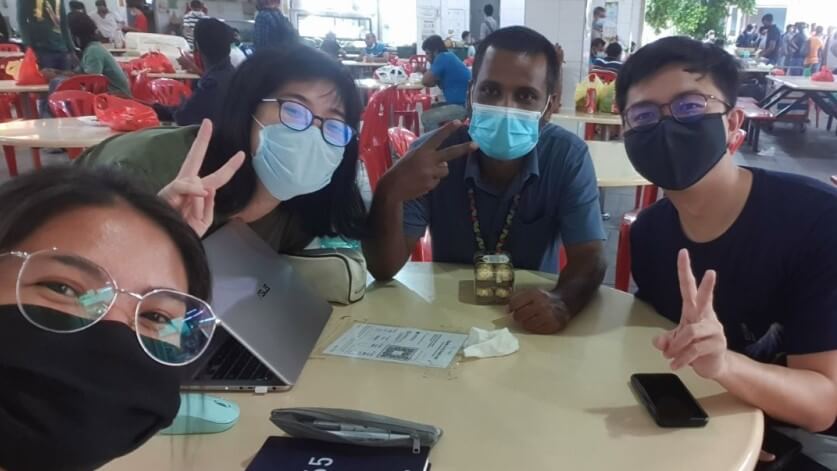
Yu Ting (second from left) with fellow group mates posing for a shot with the migrant worker they interviewed
It paved the way for me to volunteer in the migrant scene; since last year, I have been volunteering with the Covid-19 Migrant Support Coalition.
What is one quality you have been able to nurture at SMU?
Being bold.
When I was in secondary school and junior college. I was placed in a routine of “class, break, class, CCA, rinse and repeat”. There were relatively fewer choices that I had to make, so being bold was not a trait that was required.
This became radically different at SMU, where I enjoyed so much autonomy in choosing what to do – and that also necessitated being bold.
One of my first experiences at SMU was at a networking event during my freshman year: the event was packed with well-dressed people wearing nametags. Some were already engaged in conversations by the time I got there; I wanted to as well, but I didn’t know how to start a conversation – or even who to start a conversation with.
My courses have also molded me into being bolder, as some of them entailed speaking to external parties. This was especially so for SMU-X projects, where we had to interview strangers, understand the needs of our industry partners and communicate our proposals.
Nowadays, I am unafraid to speak to strangers, and am so, so willing to try out unfamiliar things. I live by a mantra to “roll with the punches”.
Tell us about your CCA experience.
I was part of the SMU EYE Investment Club, where I was a subcommittee member for a year. I learnt more about fundamental analysis techniques with my fellow batchmates. We also received opportunities to apply these techniques through the club’s internal stock pitch competition. It was eye-opening to hear other groups’ pitches, and the panel’s feedback was beneficial and helped me develop my skills further.
I also had the opportunity to visit Shanghai as part of the club’s Asian Investment Immersion Programme. It was a great learning experience speaking to organisations such as OCBC and CapitaLand to understand more about the China market.
What sort of global exposure programmes have you embarked upon?
I embarked upon an overseas community service programme in Vietnam, and a summer school experience in Korea.
In May 2019, we travelled to Hua Tat village in Vietnam, a few hours north of Hanoi, by bus. Hua Tat village is inhabited by the ethnic Hmong tribe, which hoped to generate an alternative source of income through tourism.
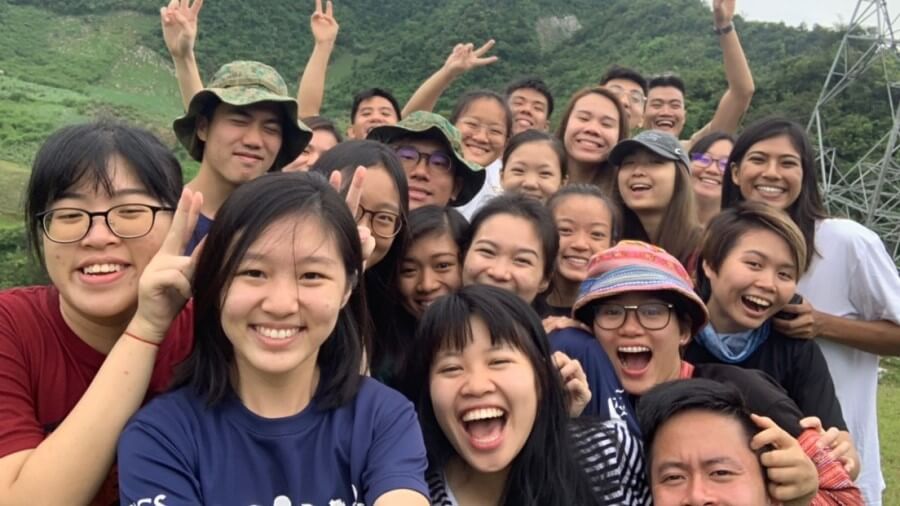
Yu Ting (extreme left) with fellow students in Hua Tat
There was already some degree of a tourism infrastructure in place – there were four homestays, a convenience stall, and established hiking trails and workshops. We added value by bolstering the existing infrastructure to create an even better experience for tourists, such as designing a village map, guides to the village, and signboards for the hiking trails. We also created a website to promote the town to potential tourists.
Beyond that, we also taught some of the villagers, such as the homestay owners, English. These involved simple terms related to hospitality and tourism, like the names of dining utensils and facilities in the village.
I was awed by the vision that the villagers had for their community, their dedication to learning English and opening up new paths (when we were there, they explored a waterfall for the first time to assess the possibility of bringing future tourists there), and the generosity they showed towards us.
I also embarked on a trip to Seoul to attend Korea University’s International Summer Programme.
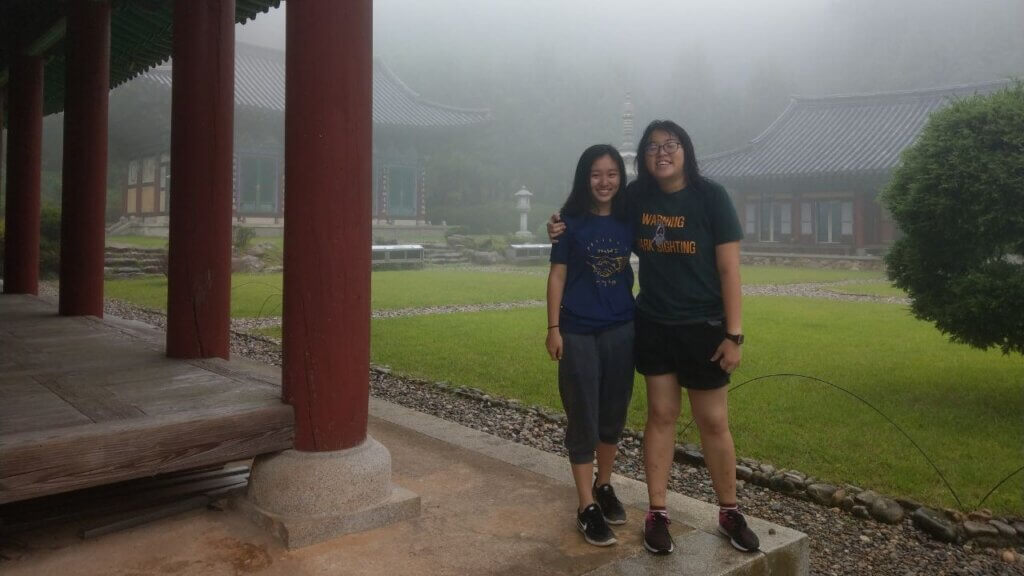
Yu Ting (right) with a fellow exchange student hiking at Mireuksan, Tongyeong City in South Korea
What was most memorable about the trip was the interaction I had with other international counterparts: I brought lots of dried hawthorn strips for my classmates to try, and one of them, who is Mexican, shared with us Jamoncillo candy – a traditional Mexican confection. I also had study sessions with a Chinese friend, who was shocked to discover that I could speak Mandarin (he conversed with me in Mandarin after that, to my amusement). We hiked in the southern city of Tongyeong, and the ahjussis (local term for uncles) we met on the trail were so kind to treat us to a local meal of chungmu gimbap (seaweed rice rolls) after the hike.
How are you financing your education?
As an SMU Merit scholar, I’m fortunate to have my university fees covered by SMU.
How has SMU prepared you for your career aspirations?
Instead of a specific job function, I aim to have a career that utilises my strengths and is aligned to my values. This sentiment was shaped by the Release Your Unique Career Strengths Workshop organised by the SMU Student Success Centre, where the trainer highlighted that utilising our strengths at work gives us energy and sets us in a “flow state” – as opposed to being purely focused on working on our weaknesses.
Meanwhile my recently concluded internship role at Schaeffler as an HR Talent Management intern also provided great insights, and I learnt how it is essential for a job to be in tandem with one’s personal values.
Complete this sentence: Five years from now, I…
Can’t wait to see where I’ll end up! My four years at SMU were full of surprises, and I would like to see how much will change in the next five years.
